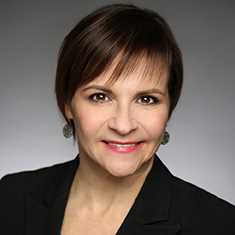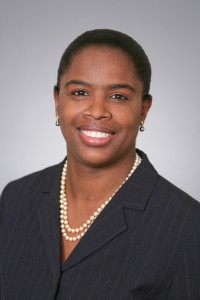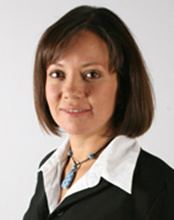 Mimi Addy is probably the only artist/electrical engineer/lawyer/MBA you will ever meet. And each part of that description represents an interesting facet that has contributed to her successful and varied career.
Mimi Addy is probably the only artist/electrical engineer/lawyer/MBA you will ever meet. And each part of that description represents an interesting facet that has contributed to her successful and varied career.
Addy initially earned a degree in electrical engineering for one important reason: she recognized the value of being financially independent, and when researching which careers were the most lucrative, engineering came out on top. To maintain a balance, she combined it with a double major in something about which she is passionate — art.
After graduation, she decided to parlay her technical education into a career that was more “people-facing” than a typical engineering career and pursued law school to become a patent lawyer.
New Degrees, New Opportunities
With the ‘90s recession in full swing, Addy’s background as an electrical engineer lawyer gave her an advantage, and she joined Willian Brinks Olds Hofer Gilson & Lione (“Brinks”). She remembers how privileged she felt to be an associate at the large, established intellectual property firm and worked there for 17 years.
While an associate at Brinks, she returned to school at John Marshall Law School to earn her LLM in intellectual property, which introduced her to new areas of law, but one of the biggest benefits was the networking opportunities the school offered. Her teachers were federal judges and top practitioners, and she also forged meaningful relationships with her peers that have paid off as they have risen in the industry.
One important connection she made was with the Honorable Paul Michel, a federal appellate judge specializing in patent cases. She told him that if he ever needed a law clerk, she would love to be considered, and a year later, his office contacted her about an opening, which she applied for and earned.
“That clerkship really focused my career,” she recalls, adding that it was a bold move that put her on a new path.
After a year in Washington, D.C., she returned to private practice at Brinks where she focused on federal appeals in patent cases. She was named a partner in 2000 and stayed there until 2011 when it appeared the firm was going in a divergent direction. “Because of the great people, I would have loved to have stayed at Brinks for my entire career, but I got to a point where I needed something different than the firm was able to offer.”
She had learned that she enjoyed the process of managing, building and growing teams so turned her attention to finding an opportunity where she could run a practice. She moved to Steptoe & Johnson’s Chicago office as managing partner and head of their office, which she doubled in size during her tenure.
“It was fun to be collaborating with the people whom you respect in the community and whose company you also enjoy,” she says.
While there, she started to note that the practice of law was changing and that individual skills were no longer enough to gain an advantage so she returned to school and earned her MBA at the University of Chicago. “At various points in my career, different accomplishments appear to be my biggest achievement, but right now it’s earning that MBA because it reinvigorated my interest in my career and in new ways that I could succeed.”
She then landed at Katten Muchin Rosenman LLP, which was looking for someone to chair and grow the patent litigation group, and she was eager to apply her managerial skills to running the practice and large litigation teams.
Along with her legal work, Addy is currently focused on trying to develop a new model for reviewing and billing legal services. “Most clients are looking for a better way to forecast to management what the legal costs should be,” she says.
Women in the Legal Field
Addy believes that there are issues that will always make it harder for professional women than men. “If I’m the one having the child, I have to take time to be with the child, and that will affect my career path. Life is about choices: You can’t have it all, all of the time, but if you plan well, you can do a lot,” she says. “Even in today’s legal practice, however, there are subliminal biases you can’t get rid of, and no matter how hard we try to level the playing field, women will always be working harder.”
As a lawyer and former engineer, she understands firsthand the importance of encouraging more women to pursue careers in male-dominated industries. She sees a need for more networking-based women’s groups for mentoring and business development opportunities. “We can be successful in the system as it is, but women need to help women,” she says, adding “We network differently than men do, and that’s a fact.”
Addy, who wishes she had had the confidence and assertiveness when starting out that she developed later on, feels passionately that women need to be taught to be assertive because you will never get what you want unless you ask for it, even pursue it. “People will notice your good work, but that’s not enough. You have to ask for assignments and opportunities and put yourself out there. If you don’t ask, the answer is always no.”
On the Home Front
Addy still embraces the creative side of her nature, saying that creating and collecting art relaxes her mind and enhances her legal career. But her best stress relief? Her daughters, Jackie, age 14, and Meaghan, age 12: “fantastic athletes, outgoing girls and my buds.”
 Half of us have done it, according to the latest Office Romance Survey by Vault, and if we have, we’re likely to be up for it again (64% would).
Half of us have done it, according to the latest Office Romance Survey by Vault, and if we have, we’re likely to be up for it again (64% would).  Half of us have done it, according to the latest Office Romance Survey by Vault, and if we have, we’re likely to be up for it again (64% would).
Half of us have done it, according to the latest Office Romance Survey by Vault, and if we have, we’re likely to be up for it again (64% would). 








